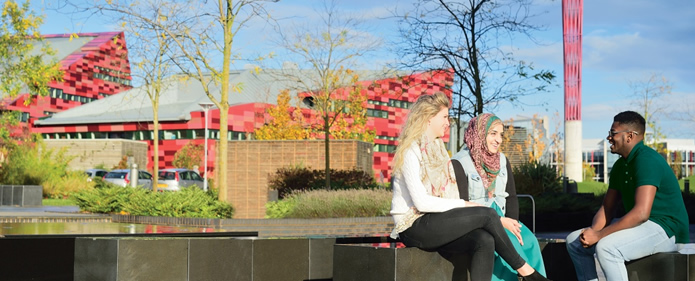
In 2015, 44 UK higher education universities successfully applied for €5.7m of Erasmus+ funding to support student and staff mobility to and from countries outside Europe, known as International Credit Mobility (ICM)
For more than 25 years, the European Union has funded the Erasmus programme, enabling over three million European students to spend part of their studies in another institution elsewhere in Europe. In 2015, recognising the importance of the extra-European international dimension, the Erasmus+ programme reached out beyond its traditional borders and offered funding to higher education institutions (HEI) to support mobility to and from many more countries from around the world through International Credit Mobility (ICM).
An international outlook
The University of Nottingham was one such HEI, receiving over €270,000 to fund Erasmus+ ICM activities in Serbia, the Russian Federation, India and South Africa. Having a very international outlook and being a strong supporter of the Erasmus+ programme (Nottingham has sent the highest number of UK students abroad through Erasmus for many years) taking part in ICM was a natural step, as Gail Armistead, Associate Director, International Office, the University of Nottingham explains:
Our internationalisation strategy lays a foundation across all areas of our institution to develop a truly global university, whether our students are in the UK or studying at campuses in China or Malaysia - Gail Armistead, International Office
Selecting partners
As this was the first year of ICM, Nottingham applied for funding to partner with HEIs in countries where they already had strong or growing links; Australia, India, Russia, Serbia and South Africa.
“We were aware that there would be fierce competition for some countries, especially where funding was limited, but wanted to make an application that did not only include traditional destinations for staff and student mobility, but that also embraced new opportunities and focussed our time and resource on countries where staff and students are less able to spend time overseas due to the costs of travelling to a high cost country such as the UK", explains Gail.
First steps
Nottingham was successful in all of their country bids apart from Australia, where, despite a high quality application, funding was very restricted. The funding in each country that they have received is generally shared across staff and student mobility and both incoming and outgoing periods of mobility. In the first year they have earmarked much of the student funding for established university links where they wish to grow student interest in exchange. It is hoped that these exchanges will be a catalyst for even stronger ties to the regions and enable them to enhance their student experience.
For staff mobility activities, they are hoping to use the funds to support visits to multiple universities as part of the project and also expect much more of the funding to go towards developing new links which may then garner student mobility opportunities in the future.
At the heart of the strategy are the staff and students who have such an impact on the success of our institution and our desire to welcome the best to Nottingham and also increasingly to foster new relationships overseas and to increase the opportunities for staff and student mobility to travel overseas and teach or study with our partners - Gail Armistead, International Office
Want to find out more about student and staff mobility in higher education? Take a look at our dedicated page!
